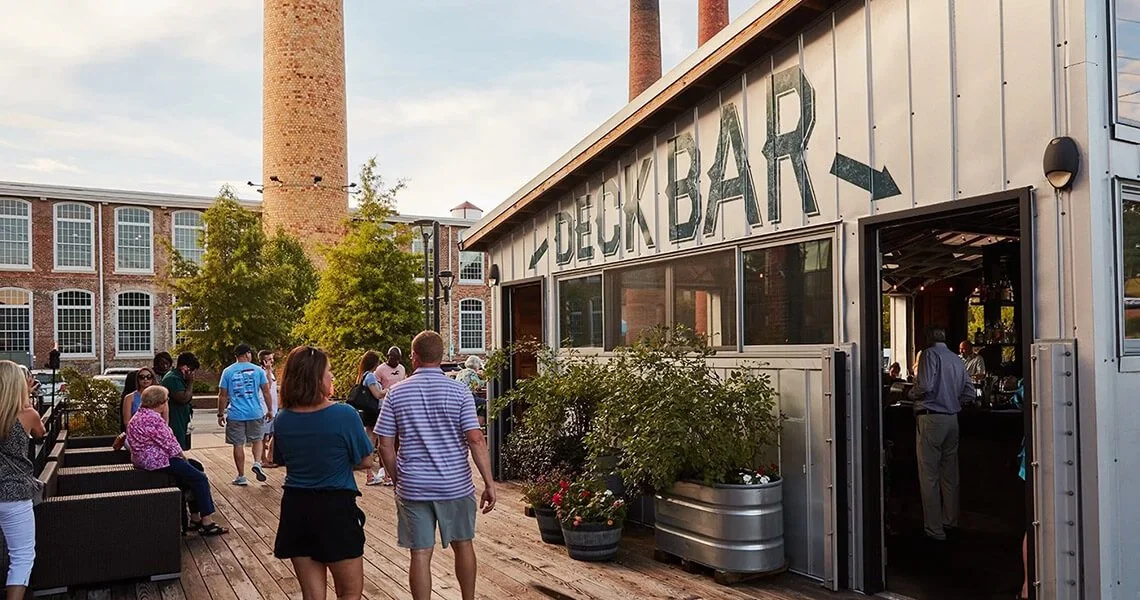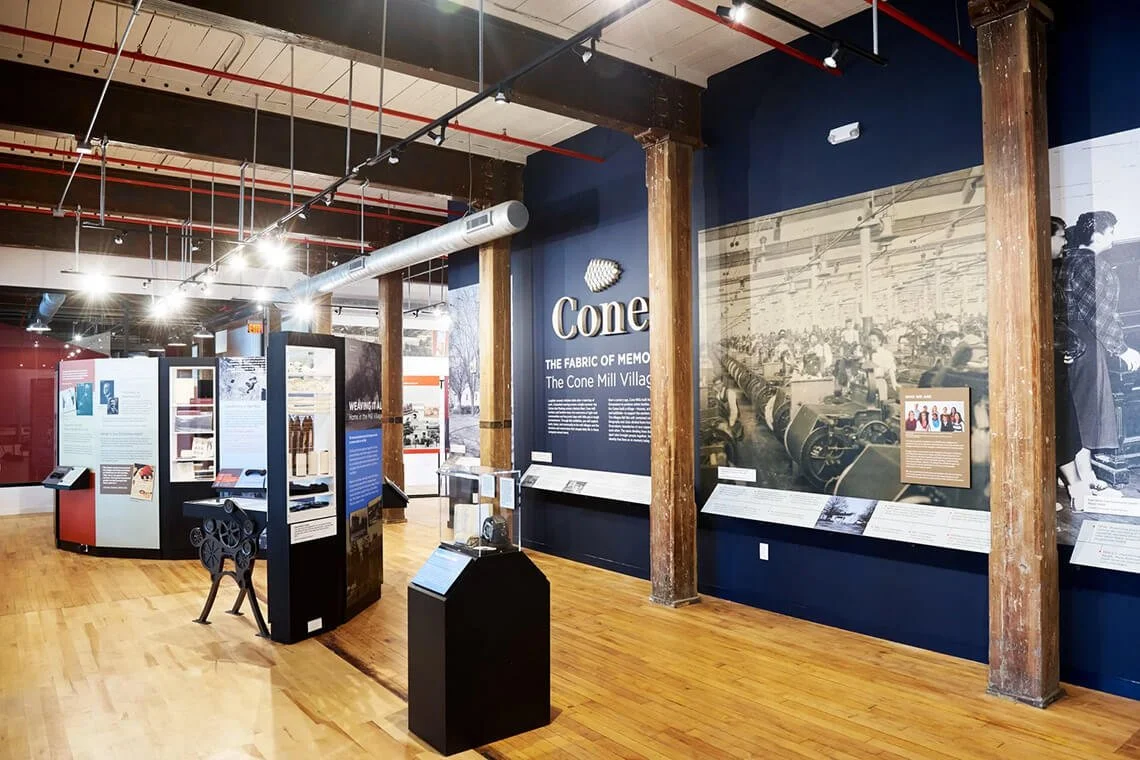Across our state, historic mill buildings provide modern spaces for people to live, play, and work. From Guilford to Nash counties, these three restored campuses blend history with present-day life.
At Cugino Forno, a wood-fired pizzeria in Greensboro’s Revolution Mill, natural light pours in through the building’s 12-foot-tall windows and splashes onto long, wooden communal tables. The sun’s warm glow, along with piping-hot pies and frosty gelato, nourishes conversations, family gatherings, and a community hotspot.
When the 800,000-square-foot Revolution Mill complex — built in 1898 as the South’s first flannel mill — was restored more than a decade ago, Cugino Forno was one of the first tenants.
“We wanted a place for families to come together,” Adam Aksoy says, who opened the restaurant with his cousins, Yilmaz Guver and Joseph Ozbey. “The big tables are very European. Whether or not people are family or friends when they come, if they sit together, they will talk, share their food, and get to know each other.”
In this way, Cugino Forno is a lot like the mill itself. What once was a factory catering to one industry is now a home for eateries, permanent residents, shops, galleries, and offices that unite people from across the city. Revolution Mill is not singular — throughout North Carolina, the brick walls that once echoed with machines now sing with conversation, laughter, and music. The following destinations demonstrate that the past can be reimagined into almost every facet our day-to-day lives.
Revolution Mill: Threading Greensboro
Black Magnolia Southern Patisserie in Revolution Mill may be best known for their award- winning bourbon banoffee pecan cinnamon roll, but the selection of biscuits, scones, cookies, and cakes is bountiful enough to suit any sweet tooth.
For a late-afternoon beer, check out Incendiary Brewing’s satellite taproom, which opens to a courtyard where patrons get the full mill effect of community and mingling. (Check their website for a live music lineup.) More in the mood for a cozy cocktail? Head over to Grapes and Grains, a speakeasy-style tavern, complete with a piano bar, that serves more than 40 bourbons, whiskeys, and scotches.
Before you leave Revolution Mill, set aside time to explore the “Fabric of Memory” interactive history exhibit, which shares the oral and written stories of Cone Mill Village residents. These are folks who lived and worked in the four villages opened by brothers Moses and Ceasar Cone. At this permanent exhibit, photographic, audio, and video documentation depicts the ups and downs of mill life in the early 1900s. The work was hard, but many agreed on one of the main perks: an appreciation for neighbors and a powerful sense of community — a narrative that continues to run through the fabric of Revolution Mill.














